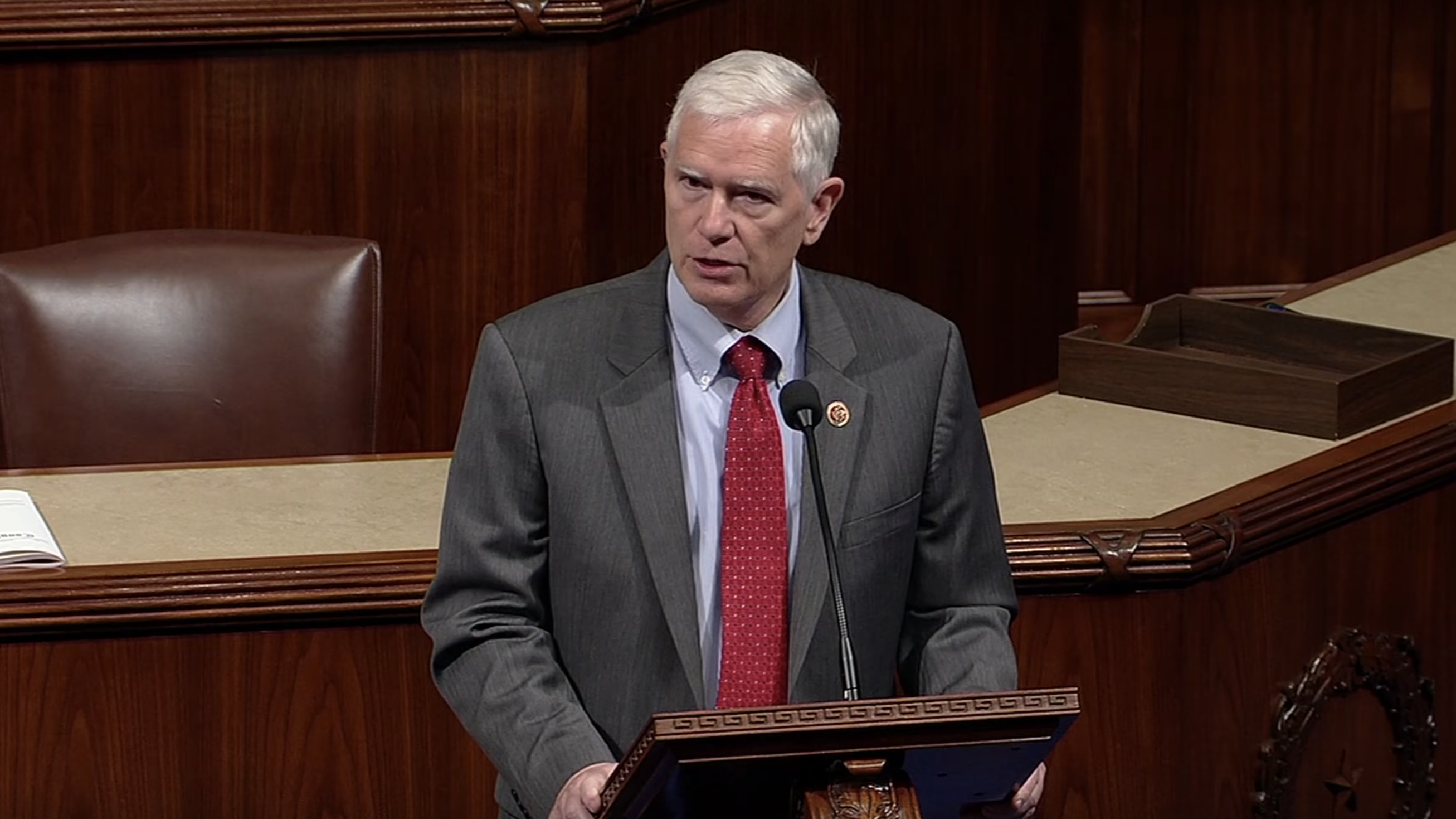Congressman Mo Brooks, R-Huntsville, touted the many positive aspects of the bipartisan National Defense Authorization Act, the bill that funds the U.S. military, in an email to constituents.
“Last Wednesday, after a 14-hour House Armed Services Committee debate session, I voted ‘Yes’ on H.R. 6395, the Fiscal Year 2021 National Defense Authorization Act. HASC unanimously passed the FY21 NDAA,” Brooks said. “The NDAA has passed Congress 59 consecutive years & authorizes Department of Defense programs. The full House of Representatives is expected to debate the FY21 NDAA in July.”
“The House Armed Services Committee’s year long national security policy process culminated in NDAA passage,” Brooks explained. “Despite COVID19 and shutdown disruptions, the Armed Services Committee successfully produced an FY21 NDAA that strengthens national security. The FY21 NDAA authorizes $731.6 billion in total defense spending; $662.6 billion is base budget military operations; $69 billion is overseas operations.”
Brooks listed a number of FY21 NDAA points that he believes strengthen national security, which include $1 billion to help America prepare for and defend against future pandemics, a 3 percent troop pay raise, $600 million above the president’s request for science and technology and investments in critical emerging technology areas such as artificial intelligence, autonomous systems, and biotechnology, and full funding for vital nuclear modernization programs to ensure that America’s nuclear deterrent is safe and reliable.
Brooks added that, “Each year the Redstone Arsenal military and contractor support community submits policy requests concerning America’s national security needs. My office successfully helped insert 27 local policy requests into the NDAA that passed Armed Services. Seventeen of those policy requests were negotiated with HASC Chairman Adam Smith (D, WA-09) and included in the Chairman’s base bill.”
Brooks successfully fought for Army aviation. Full funding for Apache helicopter modernization and advanced procurement. $136 million funding increase for Chinook aircraft. Requiring a report on the Army’s efforts to develop and acquire enhanced systems to assist aircraft navigating with poor visibility. $9.5 million funding increase for support testing of small additive manufacturing test articles to provide statistical data required for Army aviation airworthiness.
Brooks also prioritized missile defense. A $106 million funding increase for Terminal High Altitude Area Defense battery. $115 million funding increase for additional SM-3 Block IIA missiles. $130 million funding increase for the Homeland Defense Radar – Hawaii. Brooks also supported a provision adding companies that are entirely owned by an employee stock ownership plan to the definition of ‘nontraditional defense contractor’ under the Other Transaction Authority.
“The Tennessee Valley is home to many ESOP companies and this helps them compete for DOD contracts, especially as they grow into larger businesses,” Brooks said.
Brooks supported a $45 million funding increase to support the Navy’s conversion of two Expeditionary Fast Transports to be Large Unmanned Surface Vehicle prototypes. $7 million funding increase for a commercial satellite weather data pilot program, to dramatically increase the detail of atmospheric weather data and space weather data.
“The program will also improve forecasting ability for terrestrial weather and help us better understand the impact of space weather on our satellites,” Brooks said.
$20 million funding increase for the development of a heavy payload, solar-powered, unmanned aerial system to allow the Department of Defense to maintain persistent intelligence, surveillance and reconnaissance for more than 3 months, without needing to be refueled.
Brooks advocated for a $32 million funding increase for the development of active protection system technologies for the Stryker vehicle.
“APS technologies allow vehicles to protect themselves against anti-tank guided missiles and other threats,” Brooks said.
The congressman supported a $10 million funding increase for software development necessary for the planning and execution of flight missions and tests of the Army’s Long Range Hypersonic Weapon.
Brooks championed a provision supporting the Air Force’s plan for Phase 2 of the National Security Space Launch program as well as a $5 million funding increase for the development of alternative position, navigation, and timing and time transfer techniques.
“In the event of a loss or disruption of our space-based assets, it is essential to have alternate methods to communicate GPS-like data across Department of Defense systems,” Brooks said.
Brooks also successfully negotiated for requiring a report on continuity of care for abused spouses of service members.
“In addition to the 17 policy requests negotiated into the Chairman’s base bill, I successfully added another 10 amendments to the NDAA during the HASC debate,” Brooks added. “They include but are not limited to: Requiring a briefing on efforts to improve tactical satellites and synthetic aperture radar data processing. Requiring a briefing on the Missile Defense Agency’s efforts to develop a cyber-secure information technology infrastructure. $10 million funding increase for development of a material property database to serve as a design resource for the U.S. government and industry involved in hypersonic weapon system design and development. Requiring a briefing on the Army’s plan to incorporate artificial intelligence and machine learning techniques into development of its missile defense systems. $5 million funding increase for virtual training environments for Army aviators and maintainers. Requiring a briefing on how DOD will ensure that third-party assessors maintain confidentiality about any proprietary or non-public information they may have access to in course of conducting cyber certifications on DOD contractors. Authorization for the Army to provide certain goods and services at Kwajalein Atoll.”
Brooks is in his fifth term representing Alabama’s 5th Congressional District. Defense and defense contracting is critically important to the state of Alabama and especially the 5th Congressional District.






















































